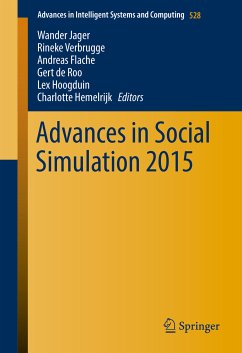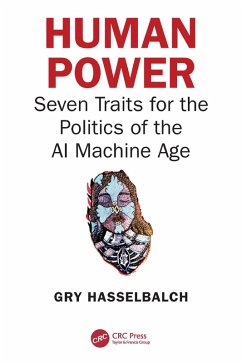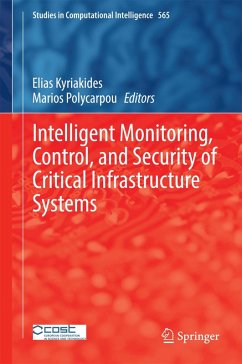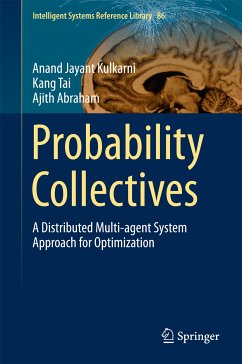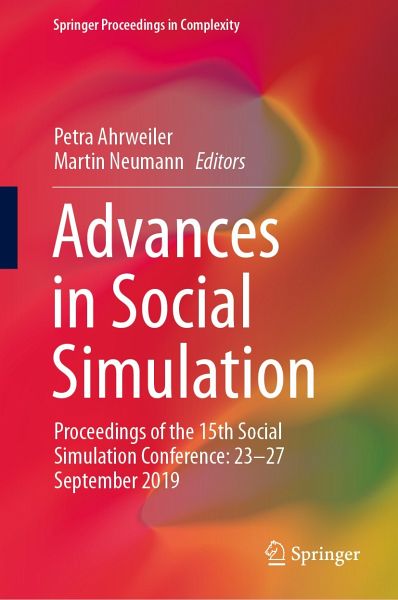
Advances in Social Simulation (eBook, PDF)
Proceedings of the 15th Social Simulation Conference: 23-27 September 2019
Redaktion: Ahrweiler, Petra; Neumann, Martin
Versandkostenfrei!
Sofort per Download lieferbar
191,95 €
inkl. MwSt.
Weitere Ausgaben:

PAYBACK Punkte
96 °P sammeln!
This book presents the state of the art in social simulation as presented at the Social Simulation Conference 2019 in Mainz, Germany. It covers the developments in applications and methods of social simulation, addressing societal issues such as socio-ecological systems and policymaking. Methodological issues discussed include large-scale empirical calibration, model sharing and interdisciplinary research, as well as decision-making models, validation and the use of qualitative data in simulation modeling. Research areas covered include archaeology, cognitive science, economics, organization s...
This book presents the state of the art in social simulation as presented at the Social Simulation Conference 2019 in Mainz, Germany. It covers the developments in applications and methods of social simulation, addressing societal issues such as socio-ecological systems and policymaking. Methodological issues discussed include large-scale empirical calibration, model sharing and interdisciplinary research, as well as decision-making models, validation and the use of qualitative data in simulation modeling. Research areas covered include archaeology, cognitive science, economics, organization science and social simulation education.
This book gives readers insight into the increasing use of social simulation in both its theoretical development and in practical applications such as policymaking whereby modeling and the behavior of complex systems is key. The book appeals to students, researchers and professionals in the various fields.
Dieser Download kann aus rechtlichen Gründen nur mit Rechnungsadresse in A, B, BG, CY, CZ, D, DK, EW, E, FIN, F, GR, HR, H, IRL, I, LT, L, LR, M, NL, PL, P, R, S, SLO, SK ausgeliefert werden.




